Lost in Kathmandu: Cracked buildings and chaos
Updated: 2015-04-28 07:17
By Zhao Yanrong(China Daily)
|
||||||||
Ten months ago when I was posted to Thailand as a correspondent, many of my friends made fun of me, saying that I would become the female version of the popular Chinese comedy movie Lost In Thailand. Well, I didn't. But, now in Nepal, I truly am.
To cover the earthquake in Nepal, I took the first flight from Bangkok to Kathmandu on Sunday, 20 hours after the earthquake happened. About a quarter of the seats were vacant on the large jet.
"Journalist? Are you a journalist?" a young Thai cameraman asked, checking with the travelers sitting near him before our flight took off. As many people were fleeing Kathmandu, reporters and UN and nongovernmental organization staff members were racing in.
Although the flight was not canceled or delayed, it took us one hour longer than scheduled, due to a strong aftershock right before the landing.
The small international airport in Nepal's capital city was full of people. Thousands of travelers sought to get out of the country. Among them were hundreds of Chinese.
"We were on the coach from Kathmandu to Bhaktapur when the quake happened. We felt the shaking getting stronger and the whole coach was jumping up and down. An overpass collapsed and people fell down. I thought we were under a terrorist attack," said Fu Hao, a 22-year-old collage student from Nanjing. "Then I saw the fences along the roads lying like a sea wave. I realized it was an earthquake."
Most of the Chinese tourists gathered at the airport heard that the Chinese government would send 10 charter flights to take them home. However, there was no official verification and they had no idea how long they would have to wait in the airport. The frustration was quite obvious.
In downtown Kathmandu, I did not find many collapsed buildings, but almost all of them had significant cracks, including some major hotels. Most shops were closed. Local people took temporary shelter in parks and schoolyards or huddled on street corners.
The Nepali army patrolled major streets, and helicopters circled the city.
A heavy rain came with the night. Some people believe that a rain means the end of a major earthquake, so it might have been a relief to them. Still, some local people spent the night outside under simple tents.
Mobile signals and Internet access were the biggest challenges for me. Because most shops were closed, a local mobile phone card became very hard to obtain. The quake and many aftershocks cut some cables in the city. Wi-Fi, even at some five-star hotels, was out of service.
To get in touch with those I needed to interview, I just kept moving to get a signal, and sometimes, even if the call went through, the other person did not have service.
There was a strong sense of loss - in the city, among the people - and also for me as I failed to catch those I needed to interview.
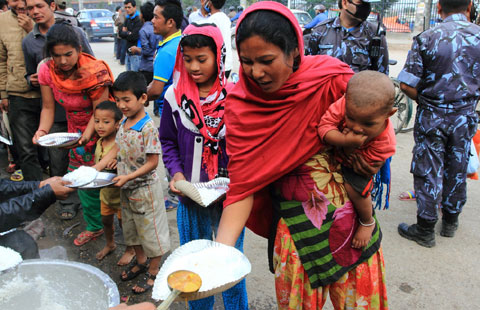
 Kathmandu's quake survivors struggle for food, water, tents
Kathmandu's quake survivors struggle for food, water, tents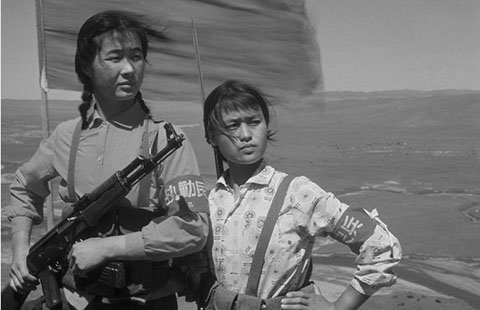
 Photographer captures changes in China
Photographer captures changes in China
 Ten photos you don't wanna miss
Ten photos you don't wanna miss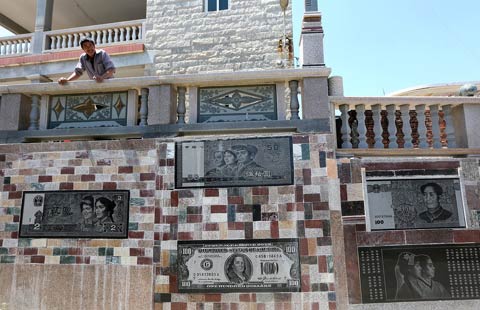
 Villager decorates wall with banknote images
Villager decorates wall with banknote images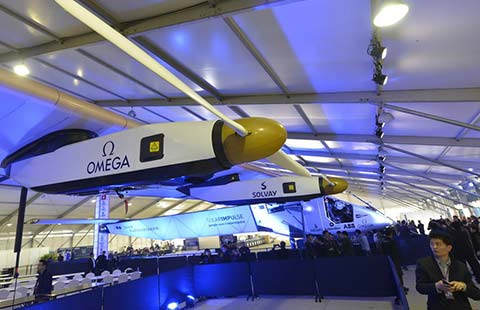
 Around the world on solar power
Around the world on solar power
 Ten ways to make travel more environmentally friendly
Ten ways to make travel more environmentally friendly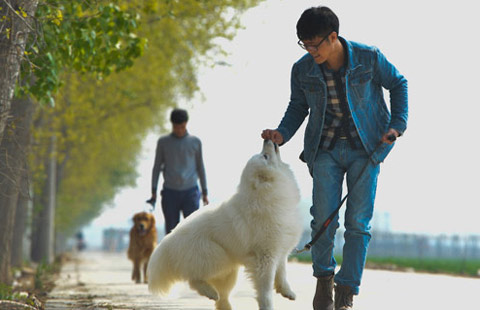
 Trainer who handles dogs with love, patience
Trainer who handles dogs with love, patience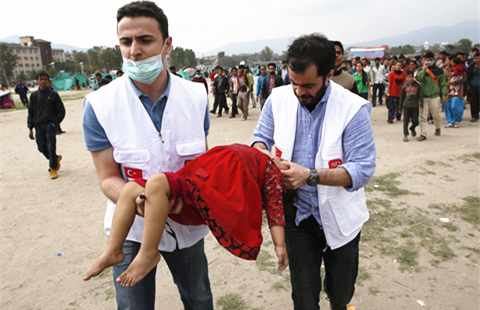
 International rescue teams head to quake-hit Nepal
International rescue teams head to quake-hit Nepal
Most Viewed
Editor's Picks

|

|

|

|

|

|
Today's Top News
Nepalis wait for quake help as death toll passes 4,000
New US-Japan defense guidelines inject instability in East Asia
iPhone sales in China surge, boost Apple's profits
61 suspects back home to be tried
Chinese, Koreans seek Japan apology
China rescue team starts work
Three US citizens among dead in avalanche after Nepal quake
Chinese rally across US to support NYC police officer under indictment
US Weekly

|

|







